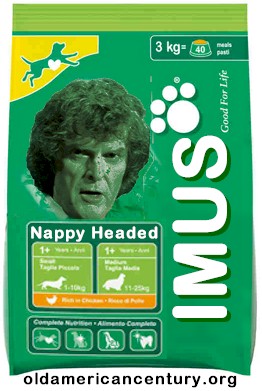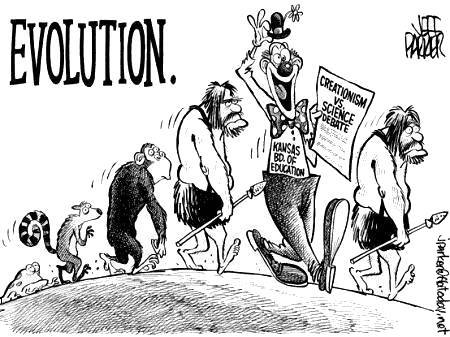Everybody Hates Don Imus

By FRANK RICH
The New York Times
April 15, 2007
FAMILIAR as I am with the warp speed of media, I was still taken aback by the velocity of Don Imus’s fall after he uttered an indefensible racist and sexist slur about the Rutgers women’s basketball team. Even in that short span, there’s been an astounding display of hypocrisy, sanctimony and self-congratulation from nearly every side of the debate, starting with Al Sharpton, who has yet to apologize for his leading role in the Tawana Brawley case, the 1980s racial melee prompted by unproven charges much like those that soiled the Duke lacrosse players.
It’s possible that the only people in this whole sorry story who are not hypocrites are the Rutgers teammates and their coach, C. Vivian Stringer. And perhaps even Don Imus himself, who, while talking way too much about black people he has known and ill children he has helped, took full responsibility for his own catastrophic remarks and didn’t try to blame the ensuing media lynching on the press, bloggers or YouTube. Unlike Mel Gibson, Michael Richards and Isaiah Washington, to take just three entertainers who have recently delivered loud religious, racial or sexual slurs, Imus didn’t hire a P.R. crisis manager and ostentatiously enter rehab or undergo psychiatric counseling. “I dished it out for a long time,” he said on his show last week, “and now it’s my time to take it.”
Among the hypocrites surrounding Imus, I’ll include myself. I’ve been a guest on his show many times since he first invited me in the early 1990s, when I was a theater critic. I’ve almost always considered him among the smarter and more authentic conversationalists I’ve encountered as an interviewee. As a book author, I could always use the publicity.
Of course I was aware of many of his obnoxious comments about minority groups, including my own, Jews. Sometimes he aimed invective at me personally. I wasn’t seriously bothered by much of it, even when it was unfunny or made me wince, because I saw him as equally offensive to everyone. The show’s crudest interludes struck me as burlesque.
I do not know Imus off the air and have no idea whether he is a good person, any more than I know whether Jerry Lewis, another entertainer who raises millions for sick children, is a good person. But as a listener and sometime guest, I didn’t judge Imus to be a bigot. Perhaps I felt this way in part because Imus vehemently inveighed against racism in real life, most recently in decrying the political ads in last year’s Senate campaign linking a black Tennessee congressman, Harold Ford, to white women. Perhaps I gave Imus a pass because the insults were almost always aimed at people in the public eye, whether politicians, celebrities or journalists — targets with the forums to defend themselves.
And perhaps I was kidding myself. What Imus said about the Rutgers team landed differently, not least because his slur was aimed at young women who had no standing in the world of celebrity, and who had done nothing in public except behave as exemplary student athletes. The spectacle of a media star verbally assaulting them, and with a creepy, dismissive laugh, as if the whole thing were merely a disposable joke, was ugly. You couldn’t watch it without feeling that some kind of crime had been committed. That was true even before the world met his victims. So while I still don’t know whether Imus is a bigot, there was an inhuman contempt in the moment that sounded like hate to me. You can see it and hear it in the video clip in a way that isn’t conveyed by his words alone.
Does that mean he should be silenced? The Rutgers team pointedly never asked for that, and I don’t think the punishment fits the crime. First, as a longtime Imus listener rather than someone who tuned in for the first time last week, I heard not only hate in his wisecrack but also honesty in his repeated vows to learn from it. Second, as a free-speech near-absolutist, I don’t believe that even Mel Gibson, to me an unambiguous anti-Semite, should be deprived of his right to say whatever the hell he wants to say. The answer to his free speech is more free speech — mine and yours. Let Bill O’Reilly talk about “wetbacks” or Rush Limbaugh accuse Michael J. Fox of exaggerating his Parkinson’s symptoms, and let the rest of us answer back.
Liberals are kidding themselves if they think the Imus firing won’t have a potentially chilling effect on comics who push the line. Let’s not forget that Bill Maher, an Imus defender last week, was dropped by FedEx, Sears, ABC affiliates and eventually ABC itself after he broke the P.C. code of 9/11. Conservatives are kidding themselves if they think the Imus execution won’t impede Ann Coulter’s nasty invective on the public airwaves. As Al Franken pointed out to Larry King on Wednesday night, CNN harbors Glenn Beck, who has insinuated that the first Muslim congressman, Keith Ellison of Minnesota, is a terrorist (and who has also declared that “faggot” is nothing more than “a naughty name”). Will Time Warner and its advertisers be called to account? Already in the Imus aftermath, the born-again blogger Tom DeLay has called for the firing of Rosie O’Donnell because of her “hateful” views on Chinese-Americans, conservative Christians and President Bush.
That said, corporations, whether television or radio networks or movie studios or commercial sponsors, are free to edit or cancel any content. No one has an inalienable right to be broadcast or published or given a movie or music contract. Whether MSNBC and CBS acted out of genuine principle or economic necessity is a debate already raging. Just as Imus’s show defied easy political definition — he has both kissed up to Dick Cheney as a guest and called him a war criminal — so does the chatter about what happened over the past week. MSNBC, forever unsure of its identity, seems to have found a new calling by turning that debate into a running series, and I say, go for it.
The biggest cliché of the debate so far is the constant reiteration that this will be a moment for a national “conversation” about race and sex and culture. Do people really want to have this conversation, or just talk about having it? If they really want to, it means we have to ask ourselves why this debacle has given permission to talking heads on television to repeat Imus’s offensive words so insistently that cable news could hardly take time out to note the shocking bombing in the Baghdad Green Zone. Some even upped the ante: Donna Brazile managed to drag “jigaboo” into Wolf Blitzer’s sedate “Situation Room” on CNN.
If we really want to have this conversation, it also means we have to have a nonposturing talk about hip-hop lyrics, “Borat,” “South Park” and maybe Larry David, too. As James Poniewozik pointed out in his smart cover article for Time last week, an important question emerged from an Imus on-air soliloquy as he tried to defend himself: “This phrase that I use, it originated in the black community. That didn’t give me a right to use it, but that’s where it originated. Who calls who that and why? We need to know that. I need to know that.”
My 22-year-old son, a humor writer who finds Imus an anachronistic and unfunny throwback to the racial-insult humor of the Frank Sinatra-Sammy Davis Jr. Rat Pack ilk, raises a complementary issue. He argues that when Sacha Baron Cohen makes fun of Jews and gays, he can do so because he’s not doing it as himself but as a fictional character. But try telling that to the Anti-Defamation League, which criticized Mr. Baron Cohen, an observant Jew, for making sport of a real country (Kazakhstan) and worried that the “Borat” audience “may not always be sophisticated enough to get the joke, and that some may even find it reinforcing their bigotry.”
So if we really want to have this national “conversation” about race and culture and all the rest of it that everyone keeps telling us that this incident has prompted, let’s get it on, no holds barred. And the fewer moralizing pundits and politicians, the better. Hillary Clinton, an Imus denouncer who has also called for federal regulation of violent television and video games, counts among her Hollywood fat cats Haim Saban, who made his fortune from “Mighty Morphin Power Rangers.”
Listening to Les Moonves of CBS speak with such apparent sincerity of how his network was helping to change the culture by firing Imus, I couldn’t help but remember that one of CBS’s own cultural gifts to America has been “Big Brother,” the reality game show that cloisters a dozen or so strangers in a house for weeks to see how they get along. Maybe Mr. Moonves could put his prime-time schedule where his mouth is and stop milking that format merely for the fun of humiliation, voyeurism and sexual high jinks. If locking Imus and his team in a house with Coach Stringer and her team 24/7 isn’t must-see TV that moves this conversation forward, then I don’t know what is.






















